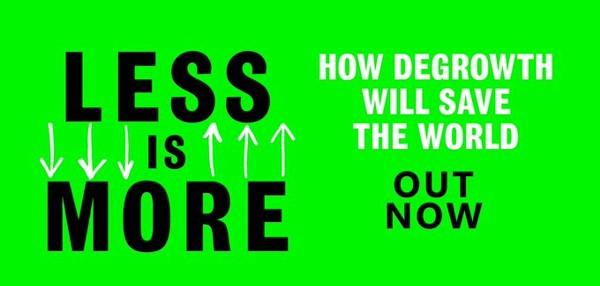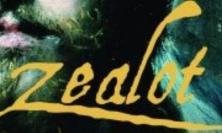This is a book which has confirmed a nagging suspicion I have had for some time – that recycling, solar panels and electric cars are not enough: to save the world, or more precisely to save humanity along with a huge slice of our fellow species, we have to be far more radical.
Eswatini-born Jason Hickel is an economic anthropologist with interests in history and philosophy. His book begins with an early memory, which I share. After long drives with his father in Swaziland, his job was to scrape the dead insects off the pickup’s radiator. This was back in the 1980s when radiators were thick with hundreds of insect species. Today, on his visits to southern Africa, he notes that radiators are almost clean. I can confirm his observation from my own in the 1950s in the Copperbelt and I resonate with his concern about its implications.
The boy from Swaziland is today a Fulbright scholar and serves as an advisor for the Green New Deal for Europe. The question he deals with in Less is More was posed by his partner one evening in 2012 after a lecture by economist Paul Krugman in London. Krugman had argued that in the wake of the great recession of 2008, what was needed was a ‘massive government stimulus’ to get the US economy growing again. Hickel’s partner wondered aloud whether ‘one of the richest nations in the world, really needed more GDP, when so many nations do so much better on all the indicators that matter’ (p.292).
His answer is that not only do the rich nations not need to grow, but they need to stop growing – degrowth. For growth is the ultimate driver of our clear and present ecological crisis. It’s what dumps greenhouse gas into the atmosphere and heats the planet. It’s what wastes the earth’s non-renewable resources. It’s what is killing off species at an unprecedented rate. It’s what is pumping so much pollution into the earth’s living systems that the earth can no longer process it.
Can we have our cake and eat it with ‘green growth’? Hickel supports the new technologies which mitigate the above problems, but warns that they too take their environmental toll, albeit a lesser one than fossil-fuelled technologies. He also points out that much depends on what we do with our new green technologies. If we end up with twice as many electric cars as petrol ones, this may cool the planet but we could still rip up more arable land and pristine wilderness. Technology alone won’t save us.
The word ‘degrowth’ is unattractive both aesthetically and in its implications. After all, growth is natural and good, and ‘degrowth’ suggests the stunted and stalled. But it is not growth as such that Hickel is attacking, rather what he calls ‘growthism’. Certainly, it is appropriate for developing nations to grow their economies for the wellbeing of their population while it is expanding and moving out of poverty. But growth for growth’s sake in rich nations is the problem. Growthists do not ask what the growth is for; it’s just assumed to be good in itself. Nor do they ask where the profits of the growth go. Hickel thinks we should.
Here lies the challenge. History is littered with entrenched ideas which didn’t just roll over when confronted by the findings of rigorous science. A good example would be the Copernican challenge to the geo-centric vision of the cosmos. Galileo took the brunt of the pushback to that shattering new idea. Today we have huge political and economic interests invested in the orthodoxy of indefinite compound growth. Those interests are not going to give up their wealth and power and the ideas that underpin them easily.
The good news, which Hickel takes care to convey, is that degrowth does not mean that we have to live in caves. He argues strongly for the assertion he makes in his title: ‘less is more’. The research shows that his partner was right, that many countries in the world do just fine on a fraction of the GDP of the USA. The star is Costa Rica which, with one fifth of the USA’s per capita GDP, has higher indicators of longevity, general health, wellbeing and contentment, and does minimal ecological damage. Of course, sharing is absolutely key, the institutionalised sharing of universal healthcare and education in particular. Also, a less materialistic vision of life which understands that our security and wellbeing do not lie in consumerism but in community.
Look at the problem with another example. Portugal, is healthier, happier and better-educated than the USA on $38,000 less per capita GDP than the USA. This means that all the extra effort Americans put into getting $38,000 more than the Portuguese is simply a waste of time and energy and does unnecessary damage to the planet. He adds that it, ‘adds up to $13 trillion worth of extraction and production and consumption each year, and $13 trillion worth of ecological pressure, that adds nothing in and of itself, to the fundamentals of human welfare…This means that the US economy could in theory be scaled down by a staggering 65% from its present size while at the same time improving the lives of ordinary Americans, if income was distributed more fairly and invested in public goods’ (p.178).
Furthermore, he reminds us, most of the fruits of all this extra effort by Americans go to their richest 1% anyway. In global economic terms, we are actually spending a very high proportion of our time and energy enriching people who already have more money than they can possibly use, so why don’t we revolt?
Hickel recalls that people have revolted in the past, for example during the European peasant uprisings five hundred years ago. His book’s preface, written by two members of Extinction Rebellion, hints that revolution is brewing again. But aggressive capitalism – which has thrived on growthism, constantly seeks out new areas from which to gouge out free value and has spawned the disasters of the enclosure movement and colonialism – is politically, economically and intellectually deeply entrenched. Listen to any talk on economics and growth is taken for granted as a good thing. Politicians of all stripes talk it up. It is still mainstream, unquestioned by the powers that be. Questioning it is our contemporary taboo. Amazon is coming to Cape Town where it will ‘develop’ an ecologically sensitive area of land. Why? Well, to grow of course. But only a few small groups have questioned whether we actually need Amazon in South Africa – or Amazon anywhere.
Now, it’s true that if we continue to kowtow to this contemporary taboo and just leave things as they are, the planet will eventually force degrowth upon us. The problem is that the momentum of the economic and industrial juggernaut will continue to wreak havoc, even as the planet fights back and forces us to readjust and change, and some of that havoc, like climate change and species loss (even the loss of the human species) may be forever. Look at the ‘zombie industries’ like coal, oil and gas that stagger on even though the world now knows that they should be killed off immediately.
Less is more. It’s a paradox whose time has come, and which should not be startling to the members of a faith who believe in a God whose son emptied himself and lost everything for the sake of our ultimate human flourishing.
The reviewer, Fr Chris Chatteris SJ, teaches at St Francis Xavier seminary in Cape Town.






